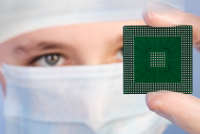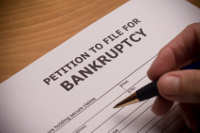10 signs you're a credit card abuser
Published 8/22/11 (Modified 8/24/11)  By Angela Spires
By Angela Spires
Five years ago, I was asked at the register at Victoria's Secret if I would like to apply for a Secret Angel's card. And as if my dreams of becoming a Secret Angel (never mind that it was for Victoria and not Charlie) weren't enough, the card came with a coupon book with over a hundred dollars in savings and other offers. Naturally, I applied.
Every six months to a year, my limit increased because I paid my bills on time. Soon, I had a $1,000 credit limit--maxed out--to an underwear store. Who needs $1,000 in underwear? I needed to be stopped.
High debt-to-credit limit ratios, paying credit cards late, and having too many credit cards can all have negative impacts on your credit score. If you're not paying attention to your spending, or you think using your credit limit to its full potential is as good as sticking to your budget, you're probably a credit card abuser. And you're not alone.
I was finally able to get control of my financial debt, and I cut up the card. So, how will you know if you are a credit card abuser?
You might be a credit card abuser if…
Read the full article » By Melissa Rudy
By Melissa Rudy  By Maryalene LaPonsie
By Maryalene LaPonsie  By Richard Barrington
By Richard Barrington  By Beth Orenstein
By Beth Orenstein  By Jim Sloan
By Jim Sloan